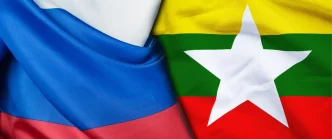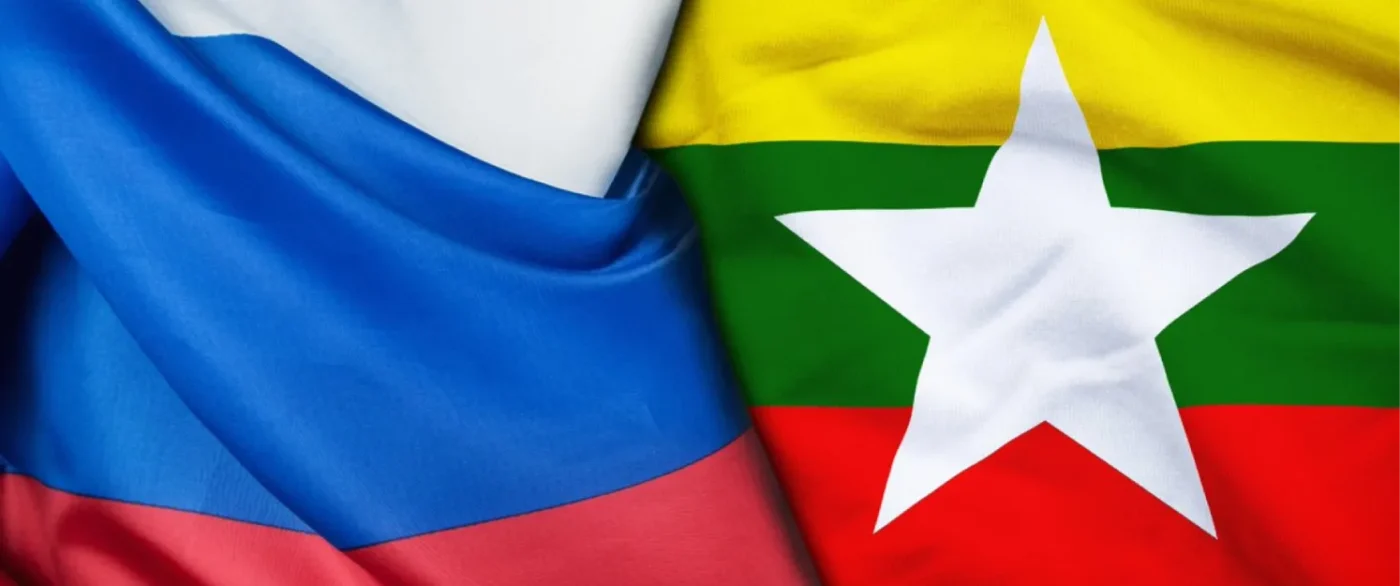In a significant step toward deepening bilateral ties, Myanmar and Russia have initiated discussions on mutual visa-free travel for their citizens, alongside broader cooperation in tourism and investment. The talks, held on June 10, 2025, in Russia, involved a Myanmar delegation led by Union Minister for Hotels and Tourism U Kyaw Soe Win and Russian officials, including the Minister of Economic Development. This development signals a potential shift in Myanmar’s international engagement strategy amid ongoing domestic challenges.
Strengthening People-to-People Connections
The meeting focused on fostering comprehensive cooperation across government, private sector, and public domains. A key proposal under discussion is the implementation of visa-free travel for citizens of both nations, a move that could significantly boost tourism and cultural exchanges. While no formal agreement has been confirmed, the initiative reflects a mutual interest in removing barriers to travel and enhancing interpersonal ties.
Officials also explored organizing Familiarization Trips, commonly known as FAM Trips, to promote tourism destinations in both countries. These trips, often arranged for travel agents, journalists, and industry stakeholders, aim to showcase Myanmar’s rich cultural heritage and scenic landscapes to Russian audiences, while highlighting Russia’s attractions to Myanmar’s emerging travel market. If implemented, such initiatives could pave the way for increased tourist footfall, particularly from Russia to Myanmar, where the tourism sector has struggled in recent years due to political instability.
Tourism as an Economic Lifeline
Myanmar’s tourism industry, once a promising driver of economic growth, has faced severe setbacks following the military coup in February 2021 and subsequent civil unrest. The country’s iconic destinations, such as Bagan’s ancient temples and the beaches of Ngapali, have seen a sharp decline in international visitors. Against this backdrop, the push to attract Russian tourists represents a strategic effort to revive the sector. During the talks, both sides discussed measures to increase the number of Russian visitors, including facilitating extended vacations for Russian government employees abroad.
The economic implications of this collaboration extend beyond tourism. Myanmar is keen to attract foreign investment in its hotel and tourism infrastructure, which remains underdeveloped despite the country’s natural and cultural assets. Discussions with Russian investors from Cosmos Hotel Group and BN Group highlighted potential opportunities in Myanmar’s coastal regions and key tourist hubs. While specific projects remain in the exploratory phase, the Myanmar delegation expressed readiness to support pilot initiatives, focusing on the country’s beaches and other attractions as investment draws.
Investment in the hotel sector could provide a much-needed boost to local economies, creating jobs and improving infrastructure. However, challenges remain, including political risks and international sanctions that have deterred many Western investors since 2021. Russia, less constrained by such sanctions, emerges as a potential partner, though the long-term viability of such investments will depend on stability within Myanmar and the broader geopolitical climate.
Broader Bilateral Cooperation
The June 10 meeting also covered participation in bilateral tourism exhibitions and other joint initiatives to promote cultural and economic exchange. These efforts align with Myanmar’s broader strategy to diversify its international partnerships, particularly with countries outside the Western sphere of influence. Russia, facing its own set of international sanctions following the invasion of Ukraine in 2022, has similarly sought to strengthen ties with nations in Asia and Africa, making this collaboration a mutually beneficial endeavor.
Analysts suggest that tourism and visa-free travel could serve as a gateway to deeper economic and political ties between the two nations. Myanmar has historically relied on neighboring countries like China and Thailand for trade and investment, but expanding relations with Russia could provide an alternative source of support. This is particularly relevant given Myanmar’s military government’s isolation from much of the international community, which has limited its access to traditional markets and financial systems.
However, the prospect of closer ties with Russia raises questions about the implications for Myanmar’s foreign policy and domestic stability. While economic cooperation could bring tangible benefits, it may also draw scrutiny from Western governments and international organizations critical of both nations’ human rights records. If confirmed, any visa-free agreement or investment deal will likely be viewed through the lens of broader geopolitical dynamics, including Russia’s role in Southeast Asia and Myanmar’s ongoing internal conflicts.
Challenges and Opportunities Ahead
While the discussions mark a positive step, several hurdles must be addressed before tangible outcomes emerge. Visa-free travel, for instance, requires careful coordination on immigration policies, security protocols, and reciprocal arrangements. Both countries will need to ensure that such a policy does not compromise national security or lead to unintended migratory pressures. Additionally, the success of tourism initiatives hinges on Myanmar’s ability to guarantee safety and stability for international visitors, a significant challenge given ongoing violence in several regions, including Rakhine and Shan states.
From an economic perspective, Russian investment in Myanmar’s hotel sector could face logistical and regulatory obstacles. Investors will likely seek assurances on property rights, repatriation of profits, and protection from political risks—issues that have historically deterred foreign direct investment in Myanmar. The government’s willingness to assist with pilot projects, as discussed during the meeting, suggests an openness to addressing these concerns, though the specifics remain unclear.
For Russian tourists, Myanmar offers a unique blend of cultural richness and natural beauty, from the bustling streets of Yangon to the serene landscapes of Inle Lake. Yet, marketing these destinations effectively will require sustained efforts to rebuild the country’s image as a safe and welcoming travel destination. Collaborative exhibitions and FAM Trips could play a crucial role in this regard, provided they are backed by robust infrastructure and promotional campaigns.
Public Sentiment and Regional Context
Public reaction to the proposed visa-free travel and tourism cooperation remains mixed, based on sentiment gauged from social media and local reports. Some Myanmar citizens view the initiative as a potential economic lifeline, particularly for communities dependent on tourism. Others express skepticism about closer ties with Russia, citing concerns over the military government’s alignment with controversial international partners. These divergent views underscore the broader challenges of governance and public trust in Myanmar, where economic policies are often viewed through the prism of political legitimacy.
Regionally, the Myanmar-Russia talks occur against the backdrop of shifting alliances in Southeast Asia. Countries like Thailand and Vietnam have also sought to bolster tourism as a post-pandemic recovery strategy, often targeting markets in China, South Korea, and Europe. Myanmar’s focus on Russia, while pragmatic given current geopolitical realities, may position it as an outlier in the region, potentially complicating its relations with ASEAN neighbors who prioritize Western or regional partnerships.
Looking Forward
As Myanmar and Russia navigate the next steps in their burgeoning partnership, the outcomes of these discussions could reshape travel and economic ties between the two nations. Whether through visa-free access, increased tourism, or hotel investments, the potential for mutual benefit is evident, though tempered by significant challenges. For Myanmar, the collaboration offers a chance to revitalize a struggling sector and diversify its international alliances. For Russia, it represents an opportunity to expand its influence in Southeast Asia amid global isolation.
Yet, as these plans unfold, questions linger about their feasibility and broader implications. Will visa-free travel materialize, and if so, under what conditions? Can Myanmar attract Russian tourists and investors without compromising its fragile domestic stability? As both nations chart this new course, the answers to these questions will likely shape not only their bilateral relationship but also their standing in an increasingly complex global landscape.
















